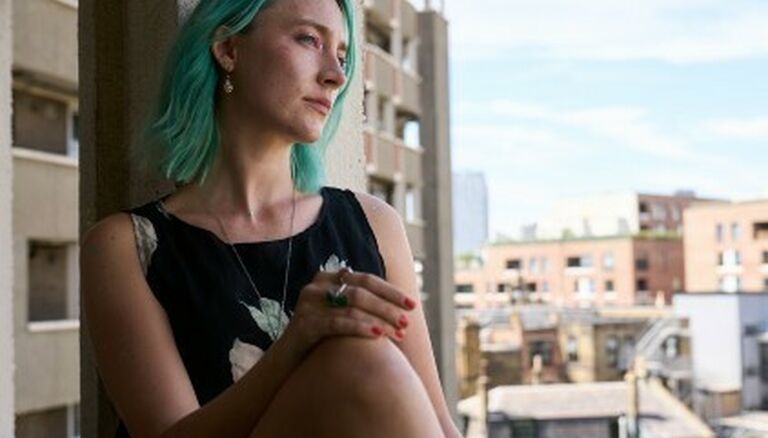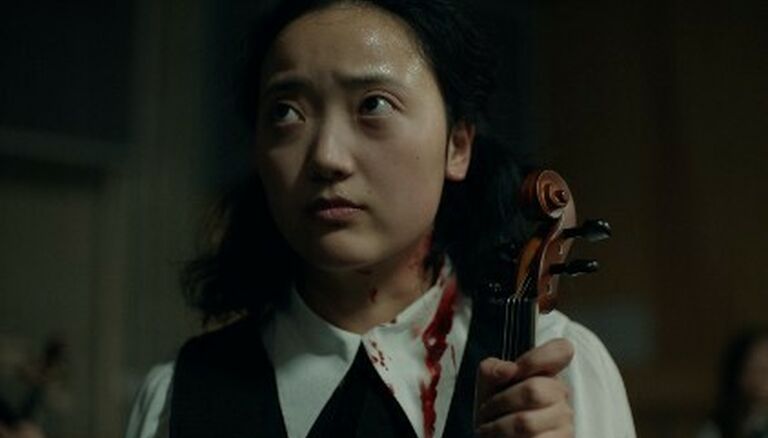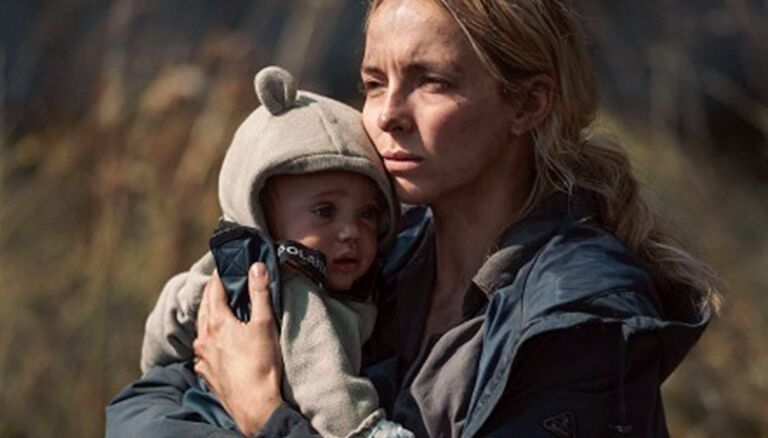Restarting UK Production
(in association with the British Film Commission)
How UK film and TV production can get started safely post-COVID.
In response to the almost complete shut-down in screen sector activity globally caused by COVID-19, immediate steps were needed to get the sector safely back to work. The British Film Commission (BFC), as part of the BFI-led Screen Sector COVID-19 Task Force, worked with industry and Government to develop and consult widely on a comprehensive set of Production protocols - the ‘Working Safely During COVID-19 in Film and High-end TV Drama Production’ guidance, launched on 1 June.
ScreenSkills, the skills body for the UK’s screen industries, was part of the consultations and has developed free e-learning for coronavirus basic awareness on production, which will launch next week.
During a Cannes Marché webinar, BFC chief executive Adrian Wootton spoke with Sarah-Jane Wright, Head of Production for Working Title Films; Chernobyl and Giri/Haji executive producer Chris Fry; and Gareth Ellis-Unwin, ScreenSkills head of film and animation, to talk about the evolving guidelines and how the experts are applying them to their own productions.
Wootton described the document as “the largest consultation exercise I think that any film or TV agency has ever done”, which was “ a long, exhaustive and exhausting process”. The document was first published on 1 June and will be constantly modified live on the BFC’s website as government guidelines change. “It’s not something that is going to go out of date.”
Meanwhile, ScreenSkills has developed a 40-minute training module on COVID awareness that can be undertaken online and has a pass-fail test at the end that generates a certificate to show to potential employers. They will also be conducting training sessions on dealing with COVID-related problems, drawing on crews’ real experience.
The experts noted that shooting under the guidelines requires meticulous forward planning. Wright said, “Everyone who works in production will agree there was always an element of organised chaos going into a production – a last-minute scramble. That is sadly a thing of the past. It has to be planned with almost military precision now.” Working Title is now factoring into schedules “a four-week Covid R&D period” where a core group of heads of department go through the script and the schedule “addressing each day in terms of what the risks are”.
Fry added that at Sister Pictures, “We are building in a three-week planning period before a six-week break to deal with legal and financial elements and approvals from our buyers and broadcasters, and then we’re adding 25% to prep and the shoot.”
Because he often works in co-productions, Fry noted, “We have to use the BFC guidelines as well as the HBO guidelines as well as the Sky guidelines. We have to fold them all in together.”
Ellis-Unwin, who is also a producer himself with credits including The King’s Speech and Steel Country, added: “I think there is a behavioural/ cultural change. One of the biggest things I’ve heard is that what used to be that maelstrom of activity where everyone would rush on set and do all of their work all at the same time and the First AD desperately trying to marshal people in and out, that’s going to become a lot more coordinated. Different departments will go in, in order, do their work and then clear. A working set might become a more ordered place.”
Each production will have its own unique needs. As Wright said, “We’re writing a risk assessment for each production. Obviously one size does not fit all. We’re adapting – and things are changing on a daily basis. We are taking a very cautious approach and sticking to the guidelines like glue.”
Of course, these extra measures can lead to extra costs. As Wright explained, “For one film, we were shooting on location in Soho. We are now shooting from 26 July on a set in Pinewood we’re building now. Our team is up there, we’ve got our COVID Coordinator – as we all know now, COVID supervision is a whole new area of the budget which was incredibly expensive, but incredibly necessary.”
Regarding another project, she added “We have one film which needs an eight-day reshoot. We have a release date and we have to hit that release date. We cannot afford for that film to go down in any way and already we’re way over budget because of what’s happened. We’re putting cast in hotels and sequestering them for the life of the shoot.”
Wootton says the budget increase will depend on the scale of the film. “What we’re finding is that the bigger the budget, the less the additional cost because they’re already got more personnel available, more schedules and more resources. It may be only as much as 9% or 10% additional cost on a film like Jurassic World, which starts shooting soon, while it could be 25 or 30% on a more modestly budgeted feature film.”
Wright agreed: “At the moment, medium to low budget movies are suffering quite a big hit. We are having to make creative compromises in terms of scale to try to mitigate some of those costs.”
Shooting projects more safely could drive up post-production costs, too. Fry said, “There is a lot of talk about VFX and how it can take care of some of the problems. It can, but it’s going to cost more. It’s hard to quantify. Things like: one of the shows we’re doing, we had five days shooting in France. We could recreate it in the UK, but it’s going to cost the art department a lot more, so you have to work out - what is the best thing to do? There are lots of those sorts of choices.”
In addition to added expense, added time is also a concern. Ellis-Unwin spoke about going on a test shoot that the National Film and TV School (NFTS) attempted in early June. I got to witness first hand working under the guidance. Working in PPE does move slower… what I took away from that shoot was how some really simple things became much more problematic. Everyone had thought about how does the crew arrive, how do we establish a one-way system through the studio, what do we do about pinch points of taking temperatures or feeding crew, but it was things like changing the batteries on a radio pack on an actress. Suddenly, instead of being a two-minute thing that the sound assistant would do, it became a rigmarole.”
Wright also noted that due to cleaning precautions and strict schedules about who is on set when, working overtime wasn’t possible.
All the producers also noted that there is a human side to all these COVID measures as well. Wright said, “Some crew are anxious about health and safety if they’re going home to people who are shielded, so we are offering our crew accommodation if they are worried about being safe. What we have to enter into with all of the crew and cast is mutual agreement - that we will protect you and you will protect the production.”
Fry agreed: “People react to this thing very differently. Some people are much more confident about getting back and some people aren’t – and I think different personnel on different productions are all slightly different. There’s a different dynamic on each of the shows that we’re doing and I think it’s about getting all of the crew into the same mindset.”
For extra safety, as well as extra mental reassurance, some productions are often exceeding the guidelines in their commitment to testing for the virus.
Wright said that for a shoot beginning on 26 July, “every crew member will be tested prior to starting work so they are declared fit for work and virus-free.” On set, they will have a company called Feature Medical doing swab tests, which are quite invasive. A-Pod crew (crew in close contact with actors) and B-Pod, (also on set but can maintain more distance), will all be tested three times a week. On the next two productions, she says, they will be likely testing only once a week, following an epidemiologist’s advice.
Fry added, “We’re also talking about extras who often work on multiple jobs – how we test around that – and guest actors who may do one day and then go to another job. Do we share test information with other productions? There are data protection issues with that. Then the bigger issue is what happens when someone key fails that test? Then you’re into a potential shut-down.”
The industry is asking productions to be responsible. As Ellis-Unwin said“I think one aspect that is really important in setting the productions up is that the risk assessment also reaches as far as enforcement and lines of reporting. People might not feel comfortable, if they observe some less than ideal behaviour, talking to the individual doing that, so I think it’s important to establish enforcement and reporting lines. One thing that people were pretty much agreed on was that they didn’t see a need for some form of national whistle-blowing helpline or whatever, it was felt this really needed to be handled within the production.”
Further reading and resources
BFC Guidance regarding COVID-19
Film & TV Charity COVID Help & Advice
Pact: UK TV Production Guidance
Public Health England: Coronavirus














